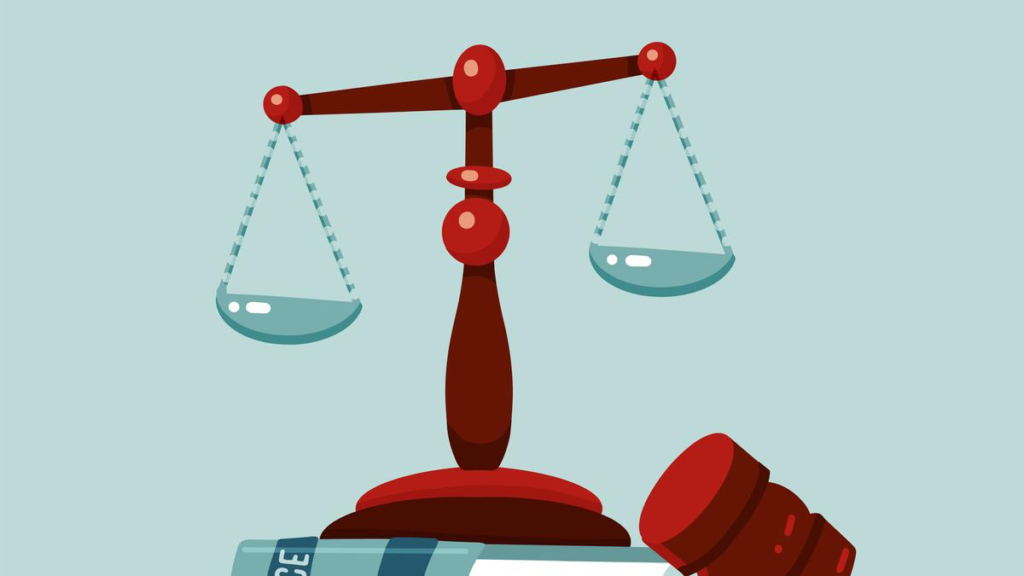Context: Justice Shekhar Kumar Yadav’s recent speech at a Vishwa Hindu Parishad event, perceived as displaying bias against Muslims, has sparked concerns regarding the difficulties in ensuring accountability for higher court judges in India.

Why do the judges need to be accountable?
• Ensuring Judicial Integrity: Judges serve as protectors of the Constitution and must uphold the highest ethical principles to preserve public confidence in the judiciary.
• Protecting Democracy: Judicial accountability is essential to ensure that the judiciary remains an impartial and fair decision-maker without exceeding its authority or weakening democratic institutions.
• Curbing Misuse of Power: While judicial independence is crucial, unchecked authority can result in misconduct or corruption, as highlighted in instances involving Justice V. Ramaswami and Justice Soumitra Sen.
• Building Public Trust: Accountability plays a vital role in maintaining public trust in the judiciary, particularly in a democracy where it functions as a check on the powers of other branches of government.
What are the accountable-related issues?
• Stringent Impeachment Process: The requirement of “proved misbehavior or incapacity” and a two-thirds parliamentary majority makes it exceedingly difficult to remove judges for misconduct.
• Resignation to Avoid Scrutiny: Judges such as Justice Soumitra Sen and P.D. Dinakaran stepped down before impeachment proceedings could be concluded, evading accountability while retaining post-retirement privileges.
• Abuse of Immunity: Accused judges continue to receive post-retirement benefits despite allegations of misconduct, as demonstrated in Justice Ramaswami’s case, weakening the accountability framework.
• Lack of Independent Oversight: The judiciary does not have an independent review mechanism beyond the Parliament-led impeachment process, limiting opportunities to address misconduct promptly.
| What is the review mechanism of committee set up under the Judges (Inquiry) Act, 1968?Initiation: The process begins with a removal motion, signed by either 100 Lok Sabha members or 50 Rajya Sabha members, and approved by the Speaker or Chairman. Investigation: Under the Judges (Inquiry) Act, 1968, a three-member committee—comprising a Supreme Court judge, a Chief Justice of a High Court, and a distinguished jurist—is formed to examine allegations of “proved misbehavior or incapacity.” Parliamentary Approval: If the committee upholds the charges, the motion is discussed in Parliament, requiring a two-thirds majority in both Houses for the judge’s removal by the President. |
Is there any accountability limitation by the Constitution for the judges?
• Article 124(4) and (5): These provisions outline impeachment as the sole method for removing judges, a process that is both politically driven and procedurally complex, requiring parliamentary approval.
• Absence of Disqualification: The Constitution does not explicitly bar judges found guilty of misconduct from holding public office in the future.
• Lack of Effective Penalties: The Judges (Inquiry) Act, 1968, provides limited consequences beyond removal, creating gaps in the framework for judicial accountability.
• Unclear Definition of “Proved Misbehavior”:The ambiguity surrounding this term makes it difficult to establish misconduct and enforce accountability effectively.
Way forward:
• Simplifying the Impeachment Process: Reducing procedural complexities and lowering the threshold for initiating impeachment can enhance the accountability of judges.
• Establishing Disqualification Criteria:Implementing explicit rules to disqualify judges from future roles after being found guilty of misconduct would strengthen accountability measures.
• Raising Public Awareness: Educating the public about issues related to judicial accountability can increase advocacy for reforms and promote closer scrutiny of judicial behavior.
• Amending Existing Laws: Updating the Judges (Inquiry) Act, 1968, to address its shortcomings and align it with modern accountability standards is essential to rebuild trust in the judiciary.

